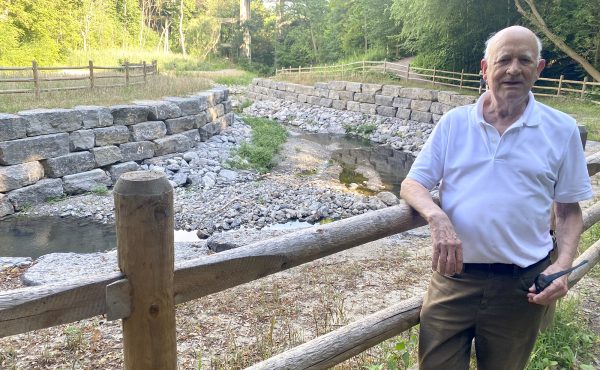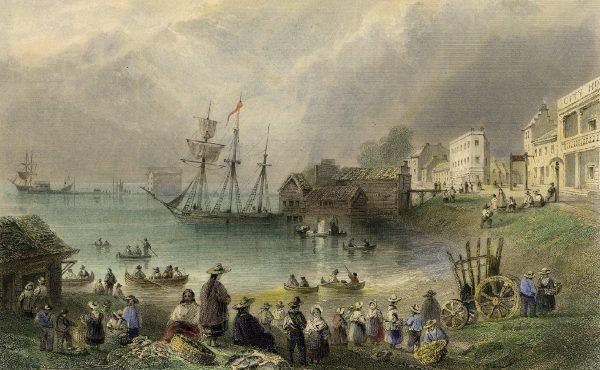

Back in July I was asked by new media marketing guru Eli Singer to make a presentation about the success of Spacing subway button collection. I took part at Case Camp, an un-conference (not a typo) on marketing. I was allowed to use only a few slides, with a maximum of 10 words on a slide. I had ten minutes to present my case study and five minutes of Q&A. For anyone who has to make presentations to crowds, this is an excellent exercise. You have to learn how to effectively tell the story of your product. Our subway buttons have an a good story attached to them, and I certainly like sharing my experiences with the TTC.
Case Camp is happening again this Wednesday. Malcolm Allen, the director of Place Brands, will present a case study on branding a place, specifically Overhoeks, an industrial area on the waterfront of Amsterdam that is about to be redeveloped. He is also in town to advise the Toronto Waterfront Redevelopment Corporation on how to effectively reach out to Torontonians and tourists during (and after) the waterfront’s development. So anyone with a keen interest in Toronto’s future waterfront development should check it out (it’s free).
Here’s the info:
- The Fifth Club
- 225 Richmond Street West, 416-979-3000
- 6:00 – doors open
- 6:45 – the first case begins




3 comments
In what way is Eli Singer a “guru�
Oh oh! I can answer for Matt!
Eli was just named one of the top 10 marketers under 30 in Canada in Marketing magazine and they focused on his new media work! Congrats, Eli!
Personally, I’m a little uneasy with the notion that we should think of living human communities as “brands,” just like shampoos or Big Macs. I find this rather dehumanising.
I’m also more than a little uneasy with the blithe acceptance of the dog-eat-dog free-market order that underlies this whole way of thinking, as neatly summarised on the Place Brands website: “In a globalised world, every place must compete with every other place for its share of the world’s wealth, talent, and attention.”
Is this supposed to be a good thing?